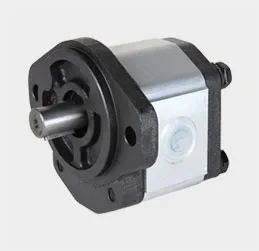High-Accuracy Flow Regulation Valve for Precise Control Applications
Understanding Precision Control Valves An Essential Component in Modern Industries
In the realm of fluid dynamics and process control, precision control valves play a pivotal role in ensuring the efficient and accurate regulation of fluid flow. These valves are integral to various applications, spanning across industries such as oil and gas, pharmaceuticals, water treatment, and power generation. Understanding the significance, functionality, and types of precision control valves can enhance operational efficiency and drive innovation in engineering solutions.
What is a Precision Control Valve?
A precision control valve is a device designed to manipulate the flow of liquids and gases within a system. Unlike standard valves that may merely act as open or closed gates, precision control valves provide the ability to finely adjust flow rates and pressures. This fine-tuning is essential in processes that require specific conditions to achieve optimal performance and safety.
The valve's primary components typically include an actuator, a valve body, and a trim, which consists of the internal parts that govern flow. Control valves can be automated or manual, and their selection depends on the application requirements, including flow characteristics, pressure conditions, and the nature of the fluid being controlled.
Importance of Precision Control Valves
The precision offered by these valves is crucial for a variety of reasons
1. Process Efficiency In many industrial processes, maintaining precise flow rates is vital. For example, in chemical manufacturing, even small deviations in flow can lead to off-spec products, waste, or even dangerous situations. Precision control valves ensure that the exact amount of material flows through the system, optimizing production processes and reducing waste.
2. Energy Savings By accurately controlling fluid flow, these valves help in minimizing energy consumption. Overflows and leaks not only waste resources but also increase operational costs. With precision control valves, systems can operate more efficiently, leading to significant cost savings in energy expenses.
3. Enhanced Safety Many industrial processes involve hazardous materials. Utilizing precision control valves can mitigate the risks associated with overpressure or leaks. By allowing for careful regulation of flow rates, these valves play a critical role in maintaining safe operational conditions in environments where pressure variations can lead to catastrophic failures.
precision control valve

4. Improved Quality Control In industries such as pharmaceuticals and food processing, product quality is paramount. Precision control valves facilitate consistent and repeatable processes, ensuring that the final products meet stringent quality standards. Any fluctuations in flow can directly impact the product; hence, controlling these variables is essential.
Types of Precision Control Valves
There are several types of precision control valves, each designed for specific applications
1. Globe Valves These are commonly used for throttling flow control and provide good flow regulation. They consist of a movable plug and a stationary seat, allowing for fine adjustments.
2. Ball Valves Known for their quick shut-off capabilities, ball valves can also be designed for throttling purposes. They are often used in applications where rapid flow control is required.
3. Butterfly Valves These valves are effective for regulating large volumes of fluid. Their simple design allows for quick operation and is often used in water distribution systems.
4. Pressure Relief Valves Essential for safety, these valves prevent excessive pressure build-up by automatically releasing fluid when reaching a certain threshold, thus protecting the system.
5. Electronic Control Valves With advancements in technology, electronic valves offer enhanced control options. These valves are integrated with sensors and controllers to allow for real-time adjustments based on system requirements.
Conclusion
Precision control valves are fundamental to modern industrial operations, providing the accuracy and efficiency necessary for effective fluid handling. As industries continue to evolve and demand higher levels of performance and safety, the role of precision control valves will only expand. Understanding their significance, types, and applications can empower engineers and operators to make informed decisions, ultimately enhancing operational reliability and productivity across various sectors. Embracing the advancements in valve technology will lead to sustainable and innovative solutions that drive industry forward.
-
Pros & Cons of Sand Casting: Products & ApplicationsNewsAug.19,2025
-
Advanced Crawler Drilling Rig for Confined Spaces-Baoding Hairun Machinery And Equipment Trading Co., Ltd.NewsAug.18,2025
-
Crawler Drilling Rig- Baoding Hairun Machinery And Equipment Trading Co., Ltd.|Pneumatic Power,Frame-Supported DesignNewsAug.18,2025
-
Precision OEM Valve Body Castings for Superior PerformanceNewsAug.18,2025
-
Crawler Mounted Drill Rig - Baoding Hairun Machinery | Underground Drilling SolutionsNewsAug.18,2025
-
Crawler Mounted Drill Rig - Baoding Hairun | Pneumatic Safety, Mining EfficiencyNewsAug.17,2025















